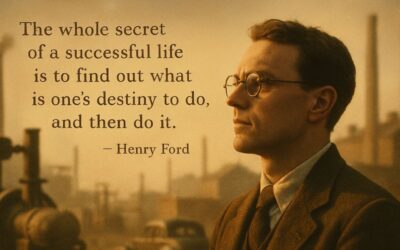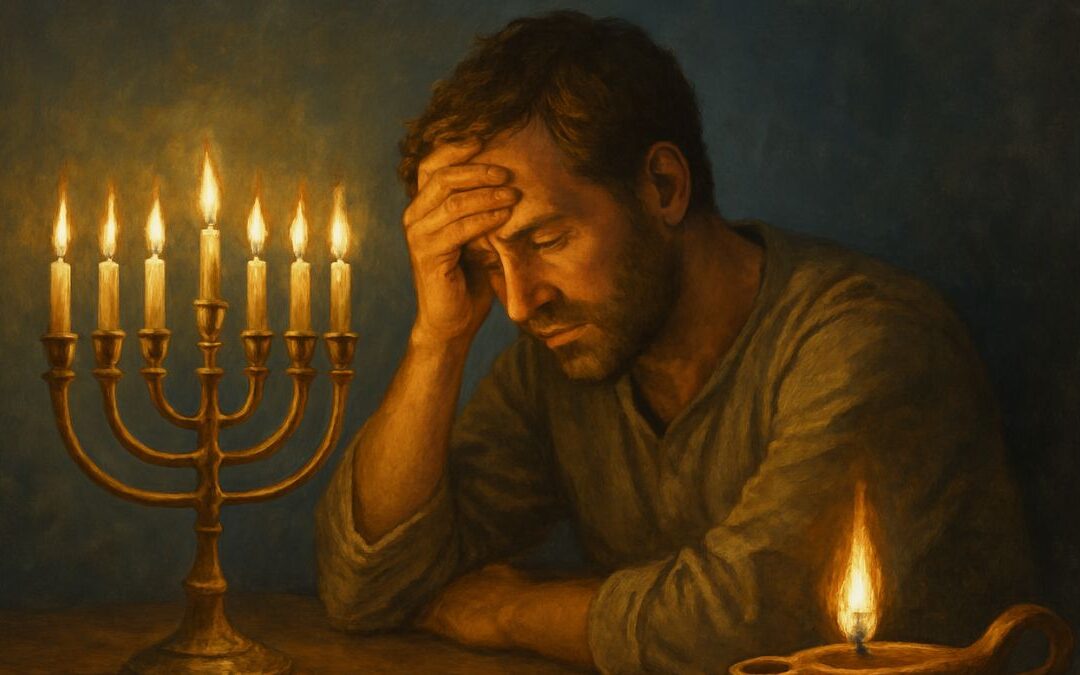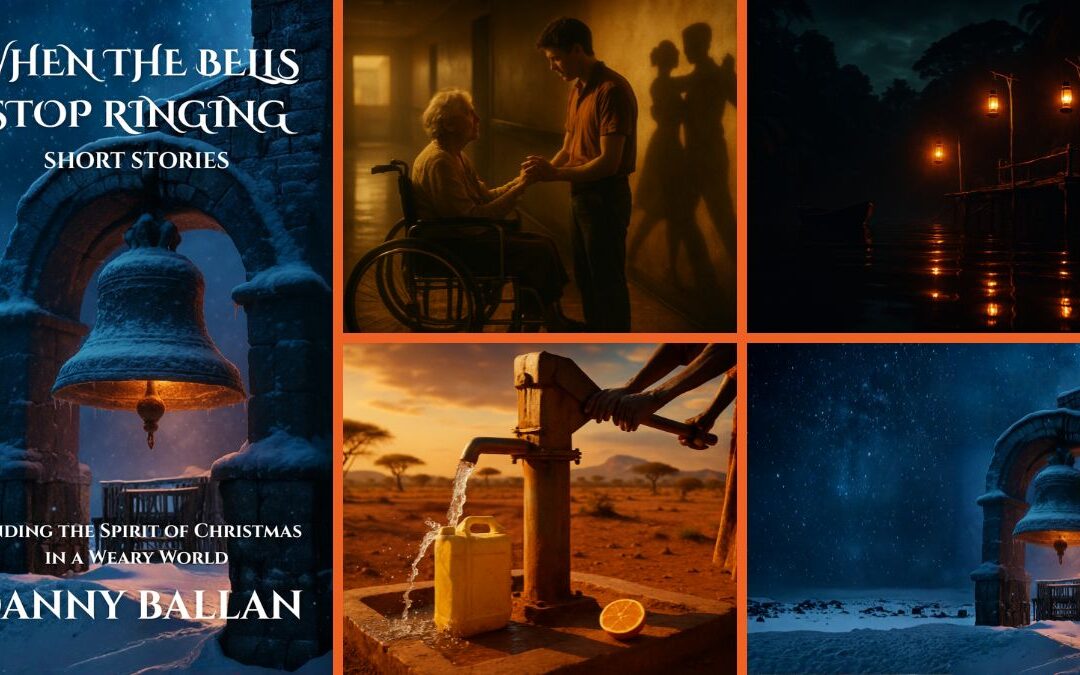The Gist
Why Trust Is About Taking Risks, Not Certainty
Trust is a word we throw around a lot. We trust people, we trust systems, we trust processes. But how often do we stop and think about what trust really means? The quote “Trust because you are willing to accept the risk, not because it’s safe or certain” brings a fresh perspective to the conversation about trust. It reminds us that trust is inherently tied to risk—real trust isn’t about having all the answers or guarantees; it’s about accepting the vulnerability that comes with uncertainty.
When you trust someone or something, you’re essentially taking a leap of faith. Let’s say you’re entering a new relationship. You have no guarantee that it will work out, right? You don’t know for sure that this person will always be there for you, that they won’t hurt you or let you down. Yet, you choose to trust them anyway. Why? Because, deep down, you know that without taking that risk, you’ll never truly experience the connection and bond that comes with trust.
The same goes for professional environments. You might trust a colleague to handle an important project, or you trust your team to deliver results. But here’s the kicker: there’s always a chance they could fall short. And that’s the point. Trust isn’t about being absolutely certain that things will work out perfectly—it’s about being willing to face the possibility that they might not, and moving forward regardless.
But why is this distinction so important? For one, it allows us to let go of the unrealistic expectation that trust equals certainty. We live in a world where we crave control and predictability. It’s human nature to want to avoid the unknown. But the reality is, nothing in life is ever truly guaranteed. By embracing trust as something that involves risk, we open ourselves up to deeper connections, richer experiences, and greater resilience.
Let’s take this idea into the realm of personal growth. Imagine you’re about to take on a new challenge—maybe it’s starting a new job, moving to a different city, or learning a new skill. There’s no certainty that you’ll succeed right away, and that can be scary. But if you choose to trust the process, to trust yourself, what you’re really doing is accepting the risk that things might not go as planned. And that’s okay! It’s through these risks that we learn, grow, and ultimately achieve what we set out to do.
So, how do we apply this mindset in everyday life? Well, start by acknowledging that trust will always involve some level of risk. Whether it’s in your personal relationships, your career, or even trusting yourself to make the right decisions, recognize that uncertainty is part of the deal. Once you stop expecting total safety or certainty, trust becomes more about confidence and courage than about guarantees.
Think about the relationships you have. Are there moments where you hesitate to trust someone fully because you’re worried they might disappoint you? That’s the risk part kicking in. But ask yourself, can you truly build meaningful connections without embracing that risk? Probably not. In fact, some of the strongest relationships are those that have weathered disappointments or uncertainties because both parties were willing to stick it out, despite the risks involved.
Trust is also a big factor in leadership. Great leaders are the ones who trust their teams not because they’re sure every single task will go off without a hitch, but because they understand that trust breeds confidence and empowerment. When you give someone trust, even when it’s risky, you’re telling them that you believe in their potential, in their ability to rise to the occasion. And that kind of belief is contagious—it encourages people to step up and prove that they’re worthy of that trust.
In conclusion, the quote “Trust because you are willing to accept the risk, not because it’s safe or certain” is a powerful reminder that trust is not about eliminating risks but embracing them. It challenges us to rethink the way we approach trust, both in others and in ourselves. By understanding that trust involves vulnerability and uncertainty, we open the door to deeper, more authentic experiences and relationships. So, next time you’re faced with the decision to trust, ask yourself: Am I willing to accept the risk? If the answer is yes, then you’re already on the right path.
Take a moment to reflect on where trust plays a role in your life right now. Are there areas where you’ve been hesitant to trust because you’re waiting for certainty? What would change if you accepted the risk instead of waiting for guarantees? Start with one small step toward trusting, even when it feels uncertain. You might be surprised at what unfolds.
Let’s Talk
Let’s talk about trust. Not the kind of trust where you know the outcome is guaranteed, but the kind where you’re taking a leap, not sure if there’s a net to catch you. That’s the real deal, isn’t it? It’s easy to trust someone or something when you know for certain everything will turn out fine. But when there’s risk involved? That’s when it gets interesting—and challenging.
Think about a time when you had to trust someone knowing full well there was a chance they might let you down. Maybe it was a big project at work, or maybe you opened up to someone emotionally, not knowing how they’d react. How did that feel? Probably a bit scary, right? But that’s the thing: trust isn’t about certainty. It’s about being okay with the fact that there’s no guarantee. In fact, if trust was always about being sure, would it really be trust? Or would it just be a kind of comfort zone?
One of the most powerful aspects of trust is that it requires vulnerability. And let’s face it, who really enjoys being vulnerable? But here’s the flip side: vulnerability is where real growth happens. When you trust someone, knowing there’s a risk, you’re putting yourself out there, saying, “I believe in this, in you, even though I’m not sure what the outcome will be.” That’s huge. And it’s not just about the other person living up to your trust—it’s about you choosing to embrace uncertainty.
This kind of trust plays a big role in our personal relationships. Ever notice how the strongest relationships are the ones where both people are willing to take risks? It’s not just about hoping for the best; it’s about knowing things might not always go perfectly and still choosing to trust anyway. Imagine if you waited for absolute certainty before trusting someone. You’d probably never build deep connections. Relationships thrive on that willingness to accept the unknown and push through it together.
The same idea applies in your career or creative projects. Think about every time you’ve taken on a challenge at work. Did you know for sure you’d nail it? Probably not. But you trusted yourself, or maybe your team, to figure it out along the way. That’s what pushes you to grow. And let’s be honest, how many times have you succeeded at something not because you were certain, but because you were willing to give it a shot despite the risk?
Now, let’s flip this around for a second. Have you ever found yourself holding back from trusting someone or even yourself because you wanted a guarantee? Maybe you didn’t ask for help because you were afraid the person might not come through. Or maybe you didn’t take that next step in a relationship or career move because you were waiting for some kind of sign that everything would be foolproof. Here’s the kicker: you could be waiting forever. If we only trust when it’s “safe,” we end up missing out on a lot of opportunities to grow, connect, and experience life fully.
Here’s something I’ve noticed in my own life: the times I’ve trusted without knowing the outcome—those are the times that have led to the most surprising and rewarding experiences. Sure, some risks didn’t pan out perfectly, but even when things didn’t go as planned, they taught me something valuable. And I think that’s what trust is really about: accepting the risk not because you’re sure everything will be great, but because you know that, either way, you’ll learn and grow from the experience.
So, let’s wrap this up with a couple of questions to get you thinking: What’s something in your life right now where you’re hesitating to trust because you’re waiting for certainty? And what might change if you were willing to accept the risk instead? It could be something small or something big, but trust me—no pun intended—sometimes the biggest leaps lead to the most unexpected and fulfilling outcomes.
Let’s Learn Vocabulary in Context
Let’s break down some of the key vocabulary from our conversation about trust, because these words are not just great for this topic—they can easily find their way into everyday life.
First, let’s talk about leap of faith. We used this phrase to describe what it feels like to trust someone or something without knowing for sure how it will turn out. It’s when you step into the unknown, hoping for the best, but without any guarantees. You might hear people say things like, “I took a leap of faith when I switched careers,” meaning they made a big decision without knowing if it would work out. In real life, we take leaps of faith more often than we realize—whether it’s trusting a new friend or trying something for the first time.
Next up is vulnerability, which is a big part of trust. Being vulnerable means opening yourself up to the possibility of being hurt or disappointed, but doing it anyway because that’s where real connections happen. In the context of trust, vulnerability isn’t a weakness—it’s a strength. Imagine sharing something personal with someone. You’re vulnerable in that moment, but it’s also how you build deeper relationships. You could say, “I felt vulnerable when I admitted I needed help, but it strengthened my bond with my friend.”
Now let’s look at uncertainty. This one’s pretty straightforward—it’s the opposite of knowing for sure. In the context of trust, uncertainty is what makes trusting someone a little scary but also rewarding. You don’t know how things will turn out, and yet, you trust anyway. We deal with uncertainty in everyday life all the time, from deciding to move to a new city to choosing to trust a partner with our feelings. You might use it in a sentence like, “I’m embracing the uncertainty of starting my own business.”
We also touched on risk, which is a word that’s central to this whole conversation about trust. Risk is the chance that something could go wrong, and it’s what makes trust meaningful. Without risk, there’s no need for trust. We take risks in all kinds of situations—trusting someone with a secret, investing time or money in a project, or even just speaking up in a meeting. You could say, “I decided to take the risk and trust her with the project, knowing there’s a chance it might not go perfectly.”
Lastly, we talked about resilience, which comes into play when trust is broken or things don’t go as planned. Resilience is the ability to bounce back after setbacks or failures. In the context of trust, it’s what helps you rebuild or move forward when things don’t work out. For example, you could say, “Even though my trust was broken, I found resilience in the experience and learned to trust again.”
So, let’s think about this in real life. Where are you taking a leap of faith right now? Is there a situation where you’re feeling vulnerable but choosing to trust anyway? And how do you handle uncertainty when it comes to trusting others? Let’s talk about how these words show up in your day-to-day life and how embracing a little risk might open up new opportunities for growth and connection.










0 Comments